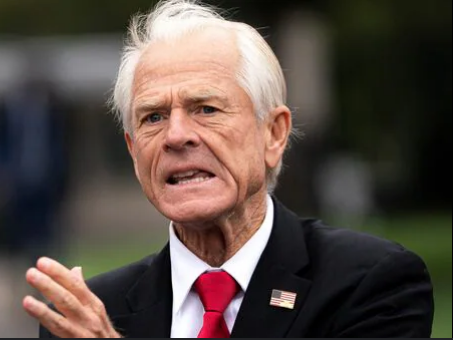In a sharp escalation of rhetoric, Peter Navarro, senior trade adviser to former President Donald Trump, launched a scathing critique of India’s Russian oil imports—repeating incendiary allegations that cast the country as a vehicle for funding Moscow’s war machine and targeting a specific societal group.
During a Fox News interview, Navarro dismissed India as “nothing but a laundromat for the Kremlin,” claiming that Indian refiners purchase discounted Russian crude, refine it, and sell it abroad for a hefty profit—thus indirectly enabling Vladimir Putin’s war economy. In his remarks, he asserted that “the Brahmins are profiteering at the expense of the Indian people,” sharpening the controversy with a pointed caste reference.
Navarro also defended the Trump administration’s punitive trade policy, which now imposes a 50% tariff on Indian goods. He argued that these tariffs are justified and could only be rolled back if India stops buying Russian oil, thereby choking off revenue to the Kremlin.
The backlash in India was swift and fierce. Oil Minister Hardeep Singh Puri rejected Navarro’s characterizations as “nothing could be further from the truth,” countering that India’s continued imports of Russian crude have helped stabilize international oil markets and maintained consumer prices—rather than facilitating profiteering or illicit activity. In an editorial for The Hindu, he emphasized India’s strict compliance with G7/EU price cap mechanisms, legal shipping, insurance, and audited interests—all framed as responsible energy diplomacy
“I want Indians to understand what is going on. Brahmins are profiteering by buying Russian oil at the expense of the Indian people,” says Trump’s trade adviser Peter Navarro pic.twitter.com/9FVfRR5lks
— Shashank Mattoo (@MattooShashank) September 1, 2025
Critics within India were equally vocal. Several public figures condemned Navarro’s invocation of “Brahmins” as both casteist and diplomatically tone-deaf, noting that such language can inflame social sensitivities. Trinamool Congress MP Sagarika Ghose underscored the loaded nature of the term in the Indian context, pointing out the inappropriateness of applying it to a modern geopolitical dispute.. Congress spokesperson Pawan Khera condemned the remarks as “baseless,” while others described them as “atrocious” or “sinister,” deepening the diplomatic fissure .
Some commentators also flagged the bizarre juxtaposition between Navarro’s language and the unrelated historical context of “Boston Brahmins”—New England elites from the 19th century—whose mention may have been misapplied in the India context.
On the diplomatic front, Navarro’s remarks further complicate US-India ties. After criticism escalated, Navarro’s stance was reiterated through multiple media channels, doubling down on the narrative that India is indirectly financing Russia’s military and harming global security and American economic interests.
Overall, Navarro’s comments—laden with cultural undertones and geopolitical accusation—have provoked a complex mix of defence, outrage, and diplomatic rebuttal in India. They underscore the fraught dynamics at the intersection of trade policy, energy security, and international relations, where language matters as much as rhetoric. India’s measured yet firm pushback signals its unwillingness to accept external judgments framed in culturally loaded terms, even in the context of broader disagreements over global energy and trade.








